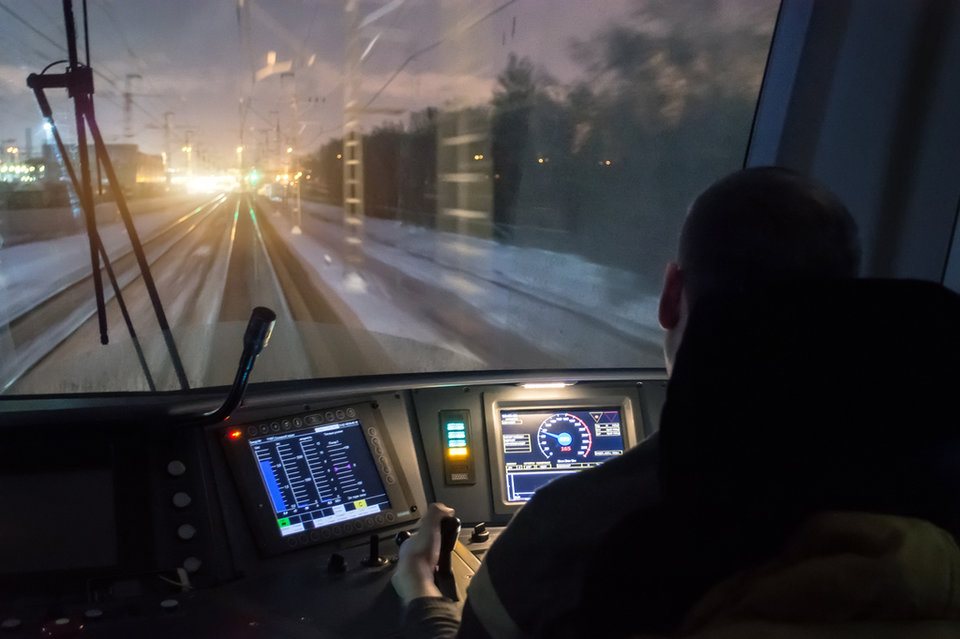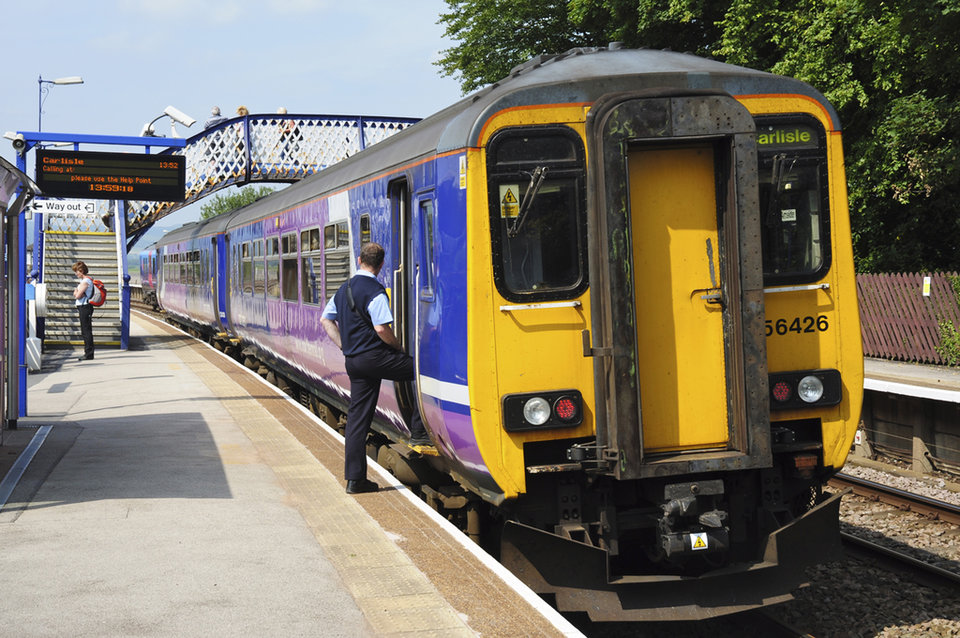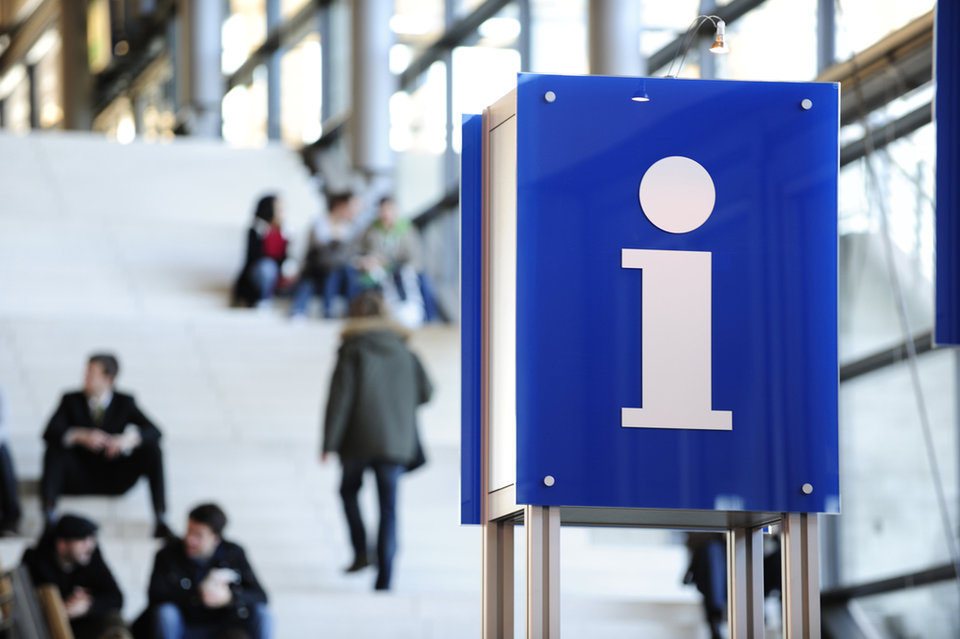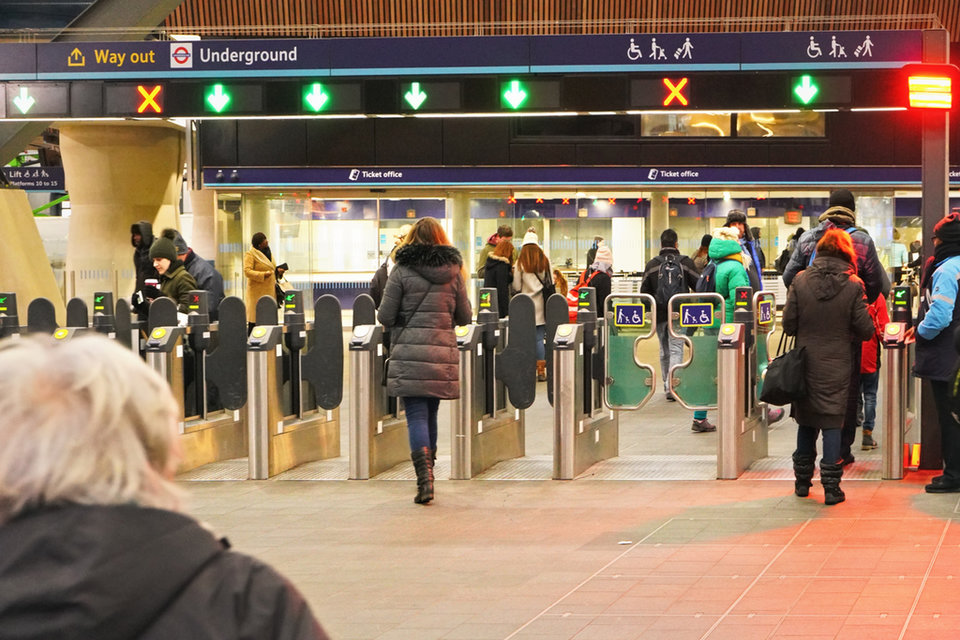Jobs under pressure
Drivers
A controversial issue all around the world, train drivers could see their roles change or possibly disappear altogether with many high-profile train manufacturers on the market already working on driverless prototypes that could soon be debuting on tracks.
While this model is already popular and consolidated in light rail and metros – the latest example being upcoming trains on the Glasgow Subway – it may not be long until companies find a way to apply it to long journeys and national passenger rail as well.
However, although a driverless future seems already laid out for the industry, drivers themselves are definitely not ready to go without a fight.
In practical terms, this means not leaving before safety is fully guaranteed. Concerns regarding the protection of passengers are, in fact, something that driverless trains are yet to fully address, but it could be only a matter of time until a solution is developed.

Train guards
In the UK especially, debates have escalated, over the past couple of years, over the role train guards hold in guaranteeing safety and support to passengers, having proved to be key in many critical situations.
Overall, train operating companies are showing increasingly eager to implement driver-only trains or adopt an Automated Train Operation (ATO) model, which could effectively eliminate any member of staff from a train. As a result, it has been suggested that the role of train guards might eventually have to change or evolve to meet new requirements.
Examples of this happening are already being seen in the UK, where several operators are planning to turn guards into on-board supervisors, which many claim would negatively limit their role to assisting the driver during safety-critical situations.

Image: Peter Moulton | Shutterstock.com
Information points and ticketing offices
It may be a while until this role becomes superfluous in big metropolitan cities – where international tourists usually require more assistance – but in small towns at least, staff employed at information points and ticketing offices could become a rarer sight in the near future. Evidence of this becoming a reality can already be seen in many European cities.
Most people can already find information about their train online or via apps like Citymapper or Trainline, which are enjoying unprecedented popularity across Europe and perform well when it comes to planning a journey.
On top of providing live and (usually) accurate updates on services, most of these websites and apps also allow to buy tickets through their platforms, which in return helps to ease overcrowding at stations and paves the way for a paperless future.
Adding to this is the unstoppable rise of robots. Already a familiar presence in many Asian railway stations, they could soon land in Western countries, where they would help provide customised assistance and relieve of their duties.

Station staff at ticket barriers
Following a similar pattern to info points and ticket offices, the railways of the future could potentially see a decrease in the number of staff supervising ticket barriers.
As previously mentioned, the end of paper-based tickets is looming and so is the use of barriers, which could soon be removed from stations entirely.
That’s according to industry giant Hitachi Rail, which is currently trialling a smart ticketing technology that uses sensors on trains to detect an app on passengers’ smartphones.
Although still in its infancy, the model could become a reality in a few decades’ time, supported by an ever-growing industry effort to make travel fully seamless.

Image: Lubo Ivanko | Shutterstock.com
Jobs on the rise
Big data analysts
Providing personalised services to customers is currently one of the highest priorities on most operators’ agenda, and there is no other way to obtain it than through detailed data analysis.
In-depth studies of crowd movements, peak hours and individual journeys are key to understanding what passengers want, their routines and, consequently, their needs.
As a result, companies are spending big to gather as much data on their customers as possible, as in the case of Transport for London’s recent WiFi-based system, which tracks passengers’ movements on the Underground.
But with rail passenger numbers currently on the rise in many countries, this practice is a challenge that few can take on-board.
While artificial intelligence (AI) will no doubt do much of the heavy lifting, creating real value will increasingly require a new set of skilled staff capable of analysing big data, singling out information and extracting key focus areas out of it.

Cybersecurity experts
Together with climate change, cybersecurity is possibly one of the biggest threats of the century for global railways and could worsen as time goes by and the 5G era kicks off.
With episodes like the 2017 WannaCry attack – which halted operations across Germany’s rail network – still fresh in the industry’s memory, considerable efforts are being made to protect railways from hackers.
Concerns are further fuelled by the arrival of 5G in stations and, soon enough, on-board trains, which could expose operators and passengers to further data breaches and disrupted services.
However, this is creating a new range of opportunities for specialised companies such as Cylus, Cervello and Mars Technology, as operators are increasingly looking to create new cybersecurity task teams.

Climate change experts
Demand is already high for environmental engineers and climate change experts across all branches of the railway industry, though as time goes by, the job’s profile could evolve into something even more specific.
This is because climate change and its damages will probably intensify over time, and railway lines around the world will need to be ready for extremely adverse weather conditions, ranging from hurricanes to wildfires.
A rising need for this type of jobs to evolve and specialise was evident over the past couple of summers, during which entire networks experienced delays and disruption as a consequence of the heatwave.
As such, long-term planning will be crucial to mitigate the impact of higher temperatures and rising sea levels, especially in countries likely to witness a drastic change in weather.

AI, IoT and digitalisation specialists
From AI to the industrial internet of things to machine learning, the rail industry is increasingly embracing digitalisation. However, the true impact of some these technologies is still uncertain, with many still being very much in their early stages.
As time goes by, more and more new recruits to the rail industry will specialise in cutting-edge technologies to facilitate a wide range of uses, including predictive maintenance, app development and signalling.
